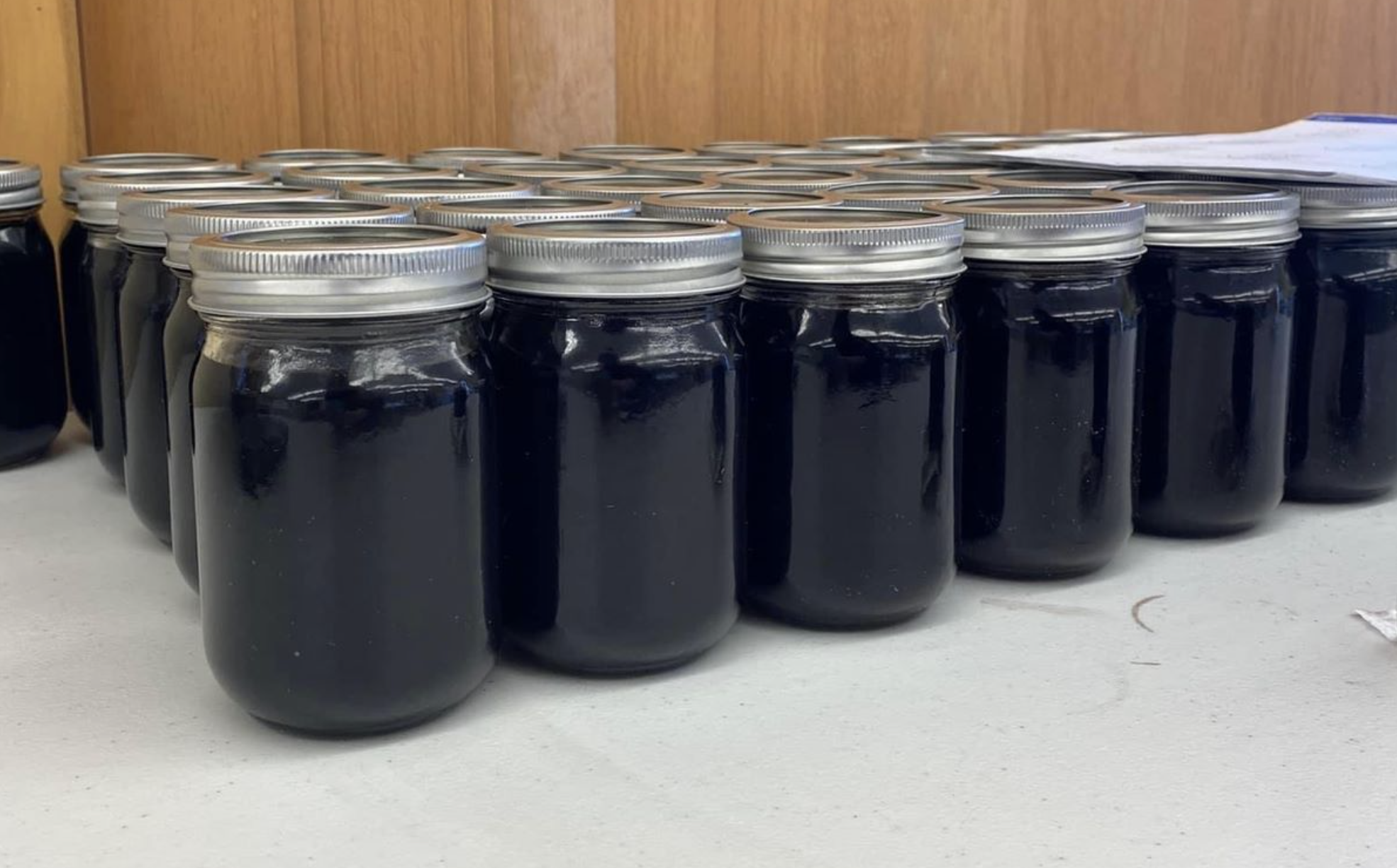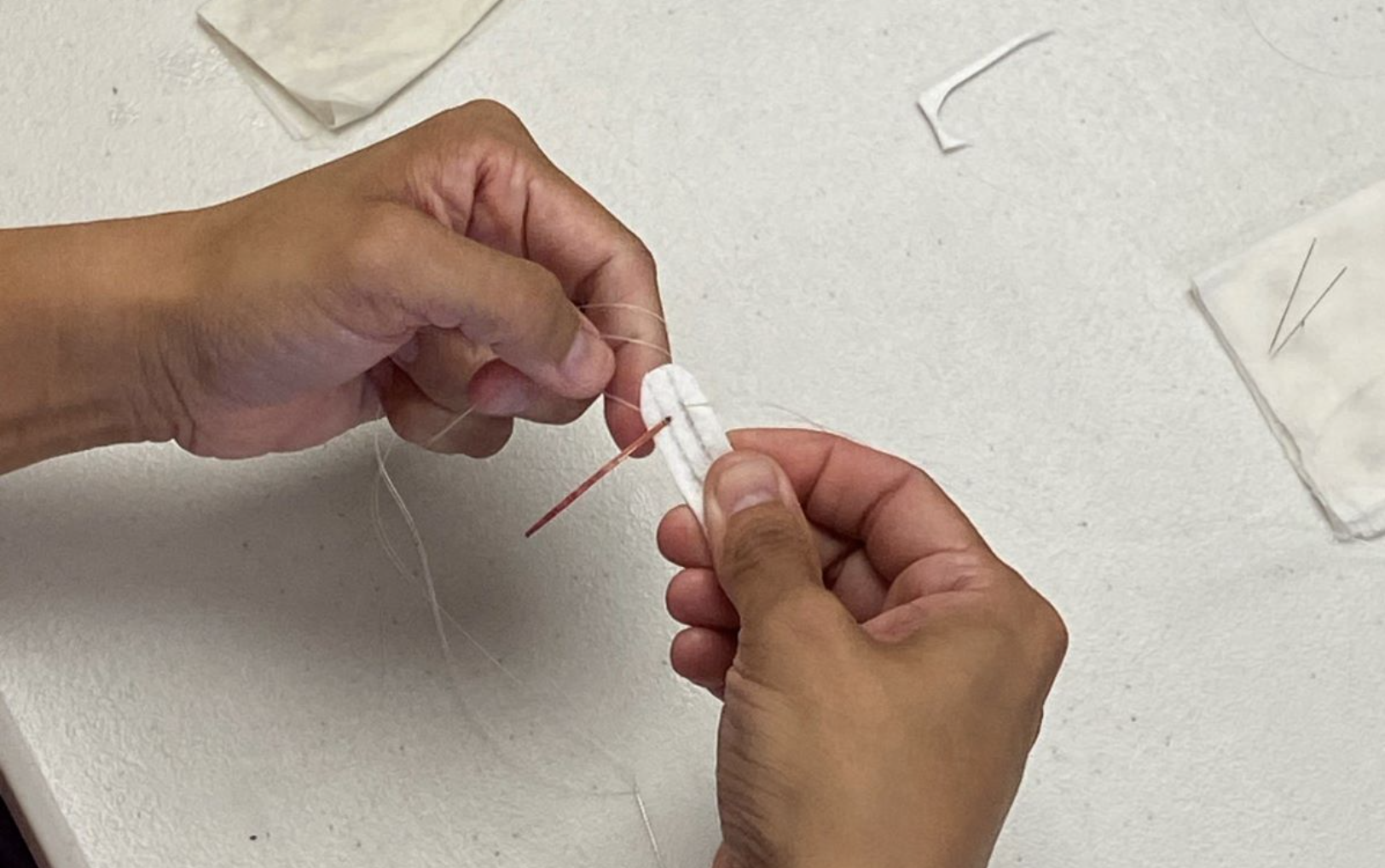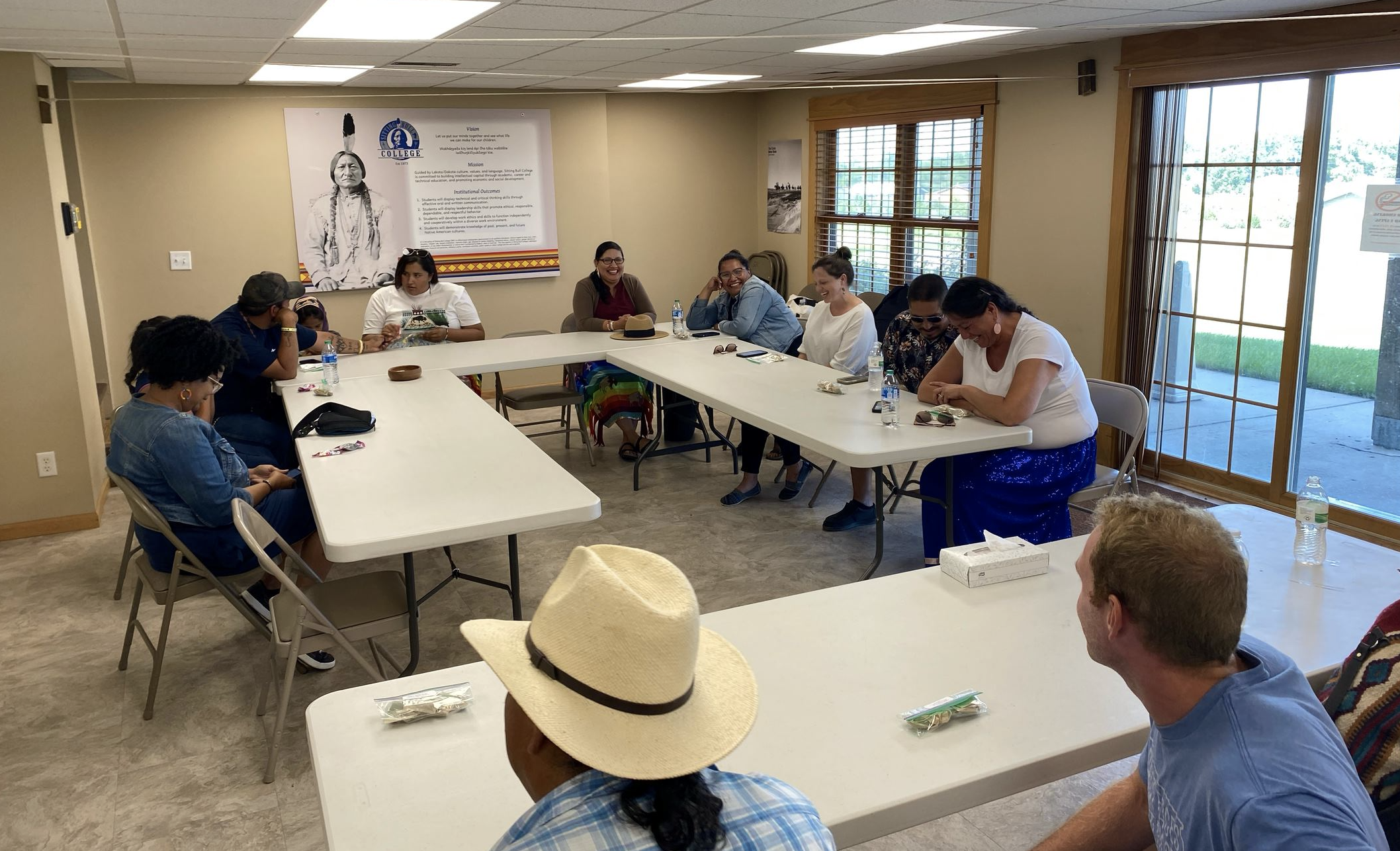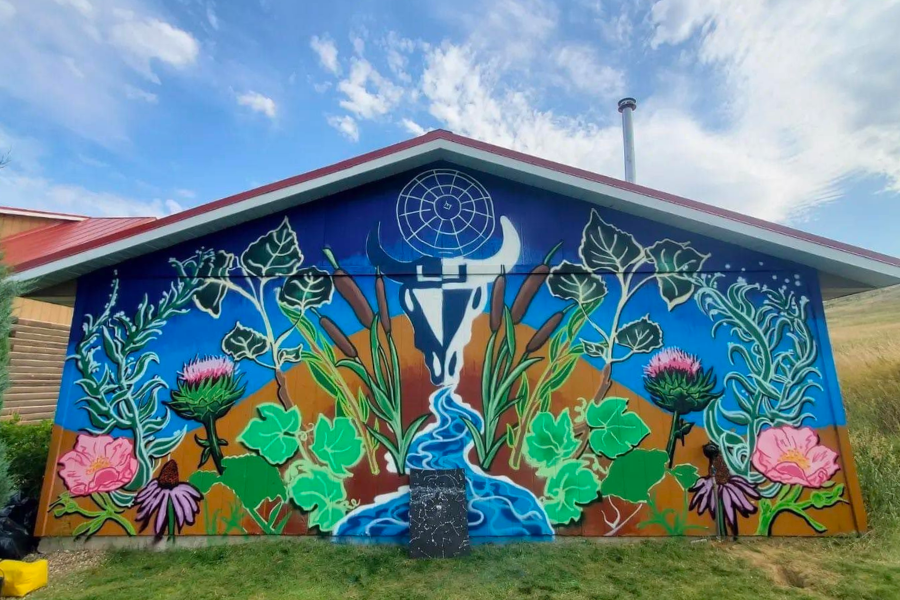The Open Kitchen will expand the center’s educational offerings on food sovereignty and honor the tradition of outdoor cooking. Programming and planning are underway to help it make an impactful debut, and updates on the initiative can be found on Sitting Bull’s website and their Facebook page.
The idea behind the Open Kitchen is a simple and intentional one—to serve as a community space for anyone interested in food-related enrichment. This will include workshops around traditional food preparation, as well as offering space and materials for community members to process food from hunting and foraging. Such workshops will be in partnership with other classes offered by Sitting Bull College, from courses related to the making of traditional cookware to the processing of Buffalo rawhide and hide for drums.

The Visitor Center has long been a community gathering space for students, locals, and visitors alike. And with its neighbor, Sitting Bull College, it has made a profound impact through community-informed programs for over 50 years.
Debra Gray Eagle, a workshop instructor at the college, works closely with programming at the Visitor Center. She is excited about the prospect of the Open Kitchen, and enthusiastically shared some of the ways that it would impact her community. “Traditionally, an elder would take his nephew out to go hunting, and he’d teach him one-on-one. Now, you could have that uncle teach 20 nephews at once in the [Open] Kitchen.”
She views the impact of the Open Kitchen in a broader context, too, with the understanding that, “what we eat gives us health or non-health.”
“I see the Visitor Center as a […] beacon for getting back to traditional re-teachings by empowering communities and students and getting back to […] land stewardship and respect for the water, animals, and plants. The Visitor Center is a place to pass on that knowledge and cultural investment.”
These “re-teachings” are invaluable to a community long underserved and denied the ability to exercise traditional food practices.

Loretta Bad Heart Bull, who works at the college’s entrepreneurial center, and closely with food sovereignty in her community, understands the depth of impact the Visitor Center has on the community. The students she teaches are often “elderly people who never learned how to do some of [the activities related to food sovereignty] because we were so ingrained in the religion of the non-natives.” In this way, the Visitor Center provides a multi-generational education, uplifting members of the community who are eager to learn but may have not previously had the opportunity to engage with this important tradition.
The services of the Visitor Center extend far past the proposed Open Kitchen and include culturally based workshops, exhibits showcasing Native American artifacts and local artwork, and other diverse courses and offerings. Workshops through the Visitor Center are offered for free to community members and count towards college credit, which brings rich and accessible sharing of knowledge to the Fort Yates area and local Lakota and Dakota tribal communities. Some of the recent workshops offered through the Visitor Center include lanyard making, quilting, and container gardening. For those just passing through Fort Yates, there are many opportunities to get involved, like tree planting activities or putting up tipis. The nature of many of the Visitor Center happenings are unique in their no-strings-attached openness and informality, and by making events free to the public, the center helps to foster transparency and inclusion.

A sentiment consistently expressed by those directly involved with the Visitor Center is the interconnectedness with the offerings at Sitting Bull College. The programming of the Open Kitchen will serve both present and future needs, as it will help to establish a solid foundation for the future of the Visitor Center.
This interconnectedness helps to bridge the gap between food and art, as the lines between such disciplines become blurred when the infrastructure exists to teach all these different areas at once. Both traditional and innovative, the instruction model offered by the Visitor Center reaches tribal members, visitors from afar, and community at large. This accessible education offered to all who seek it out helps advance food sovereignty and holistic knowledge of traditions—an ambitious goal that the Sitting Bull Visitor Center works towards each day by showing up for their community through initiatives like the Open Kitchen.
The Sitting Bull Visitor Center is part of the Community Creativity Cohort 2, a group of 40 organizations that are making art central to their community-building efforts. The Cohort was funded by the Bush Foundation and operated by Arts Midwest from 2019-2022. Check out our History to learn more about this program. This story was created in partnership with NewPublica.
